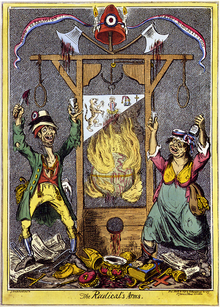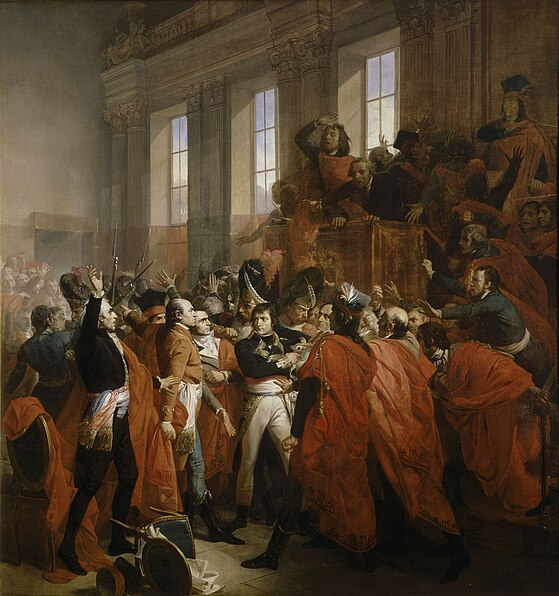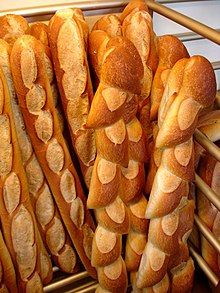"Causes of
the French Revolution." Causes
of the French Revolution. Web. 06 Mar. 2012.
<http://www.mtholyoke.edu/courses/rschwart/hist151s03/french_rev_causes_consequences.htm>.
French Revolution Social 20-1 242
Monday 12 March 2012
Historical and Social
Historical
 Many historical events held great significance in
forming the nationalism that sparked the rebellion. One such event that drew
the grounds of this rebellion was the historical system of absolute monarchy.
This form of government gave full power to the kind. When the rebellion
abolished this unjust standard, the Jacobin reign of terror was introduced.
Their motives were to establish safety among France however their means were
cruel and diplomatic. For example, anyone who objected to their rule would be
sent to the guillotine.
Many historical events held great significance in
forming the nationalism that sparked the rebellion. One such event that drew
the grounds of this rebellion was the historical system of absolute monarchy.
This form of government gave full power to the kind. When the rebellion
abolished this unjust standard, the Jacobin reign of terror was introduced.
Their motives were to establish safety among France however their means were
cruel and diplomatic. For example, anyone who objected to their rule would be
sent to the guillotine.
On another note, the event that symbolized the motive
of the entire rebellion was officialised through the storing of the bastille.
After being locked out by the estates general, the 3rd estate was determine to not disband
until they reached their motives of freedom - this was through the tennis court
oath. A sense of nationalism emerged in the 3rd estates and the spark of revolution
was ignited as peasants took power into their own hands when the storming of
the bastille was instigated. The bastille was a prison which held political
prisoners, so taking control over this area had to become a historical symbol
over this area had become a historical symbol for the oppressed society. This
is celebrated by the French people every year on July 14th.
Moreover, another historical event which motivated the
French citizens to strive for equality was when the king and queen were
charged.
Social
- Decentralization gave the citizens more power
- 1st and second estates
depended on the 3rd estates
- 3rd estates were
exploited and worked to the bone
The third estates were deprived of their fundamental
rights through exploitation of their rights because of their lack of speech.
This was questioned by the third estates and new ideas emerged and due to the
idea of freedom they wanted a decentralized government. The Jacobin party was
formed after the tennis court oath and that gave equal power to everyone. Until
the king was decapitated the Jacobins started decapitation people against them.
The reason the Jacobins were decapitating people against them is because they
were diplomats and were power hungry.
The New Justice?
The system had avoided to charge the nobles and the clergy from taxes, an ad valorem tax on land. The tax burden,
therefore, devolved to the peasants, wage-earners, and the professional and
business classes, also known as the third estate. Further, people from
less-privileged walks of life were blocked from acquiring even petty positions
of power in the regime. This caused further resentment.
Robespierre - Hebert
Another anti-clerical uprising was made possible by the installment of the Republican
Calendar on 24 October 1793. Against
Robespierre's concepts, Hebert’s concepts led to a religious movement.
The Reign of Terror had rusted the revolutionaries, while temporarily
ending internal opposition. The Jacobins expanded their intake for army, and Carnot replaced many aristocratic officers with soldiers who had demonstrated
their patriotism, if not their ability. The Republican army was able to throw
back the Austrians,Prussians, British, and Spanish. Near
the end of 1793, the army had started to break apart and they had lost their
hold. The Ventose
Decrees proposed the confiscation of the goods
of exiles and opponents of the Revolution, and their redistribution to the
needy; and the policy was never actually implemented.
Jaques Necker.
Swiss at birth, Jacques was a finance minister of Louis XVI, a post he had held before the start of the French Revolution. He was one of Louis most trusted men’s and he also managed most of his political work. He had talk to Louis about the peasants wanting justice and also warned him about the outcome if he had chosen to ignore it would cause an uprising. Necker was seen as the savior of France while the country stood on the brink of ruin, but his actions could not stop the French Revolution. He advocated doubling the representation of the Third Estate to satisfy the people. But he failed to address the matter of voting — rather than voting by head count, which is what the people wanted; voting remained as one vote for each estate
Political Factor
 The political
factor had a big influence on the French Revolution. In 1789, the National Assembly
made the Declaration of the Rights of Man and of the Citizen. The declaration
is a document that defines the individual and collective rights of all estates.
It became the new French constitution and it made a big influence on all declarations
and charters of rights. As the revolution in France started growing, monarchies
in other countries were developing state of fear thinking the revolution in
France might inspire the people to make the similar action of what the French
did. People, who were supporting the king such as the royalist and the first
and second estate, were running away from France so that they wouldn’t be
executed by the revolutionist for supporting the king. Kings and queens were
afraid the revolution might spread all over Europe, so most of the European
countries such as Austria and Britain sent troops to France to restore the
power of the monarchy. Surprisingly, the French revolutionaries successfully
fought the enemy troops coming into France just to defend their country and the
revolution. In 1793, the revolutionaries executed Louis XVI and Marie
Antoinette. The Reign of Terror was a period of terror and violence after the
French Revolution lead by the Committee of Public Safety. There were more than
25,000 people that were executed on the guillotine. Those are the people that
weren’t agreeing with the revolution. Some French were horrified by the actions
that took place during the Reign of Terror. Olympe de Gouges played a big role
during the French Revolution. In 1791, she pointed out that the Declaration of
the Rights of Man excluded women in France. The Committee of Public Safety
executed Olympe for her freedom of speech and for disagreeing the execution of
the King Louis XVI. Napoleon Bonaparte was known for his strong leadership
qualities. He was also known for uniting the French and bringing peace to the
country. While he was in power, Bonaparte attacked most of Europe and conquered
them. He launched many wars in Europe but sadly lost the last war which was the
Battle of Waterloo; defeated by the British. For some, he was remembered to be
an inspirational leader to France. Moreover, he helped strengthen the French
national pride with the wartime victories. However, for others, they remembered
him as a leader that cost the lives of a million French people.
The political
factor had a big influence on the French Revolution. In 1789, the National Assembly
made the Declaration of the Rights of Man and of the Citizen. The declaration
is a document that defines the individual and collective rights of all estates.
It became the new French constitution and it made a big influence on all declarations
and charters of rights. As the revolution in France started growing, monarchies
in other countries were developing state of fear thinking the revolution in
France might inspire the people to make the similar action of what the French
did. People, who were supporting the king such as the royalist and the first
and second estate, were running away from France so that they wouldn’t be
executed by the revolutionist for supporting the king. Kings and queens were
afraid the revolution might spread all over Europe, so most of the European
countries such as Austria and Britain sent troops to France to restore the
power of the monarchy. Surprisingly, the French revolutionaries successfully
fought the enemy troops coming into France just to defend their country and the
revolution. In 1793, the revolutionaries executed Louis XVI and Marie
Antoinette. The Reign of Terror was a period of terror and violence after the
French Revolution lead by the Committee of Public Safety. There were more than
25,000 people that were executed on the guillotine. Those are the people that
weren’t agreeing with the revolution. Some French were horrified by the actions
that took place during the Reign of Terror. Olympe de Gouges played a big role
during the French Revolution. In 1791, she pointed out that the Declaration of
the Rights of Man excluded women in France. The Committee of Public Safety
executed Olympe for her freedom of speech and for disagreeing the execution of
the King Louis XVI. Napoleon Bonaparte was known for his strong leadership
qualities. He was also known for uniting the French and bringing peace to the
country. While he was in power, Bonaparte attacked most of Europe and conquered
them. He launched many wars in Europe but sadly lost the last war which was the
Battle of Waterloo; defeated by the British. For some, he was remembered to be
an inspirational leader to France. Moreover, he helped strengthen the French
national pride with the wartime victories. However, for others, they remembered
him as a leader that cost the lives of a million French people. Geographic Causes of the French Revolution
Geographic Causes of the French Revolution
While the king demanded more taxes of the common people, France had severe weather patterns which included harsh cold and piles of snow which blocked commonly used roads used for trade and travel. This also stopped wagons carrying wheat and food supplies. Food was already scarce in the 1780’s and the harvest of the two years prior to the revolution (1788-1789) was poor due to the weather. Scientists link this awful weather to a strong El Nino cycle, which was most likely caused by the Laki eruption in Iceland, in 1783. This volcano spewed sulphuric dioxide into the atmosphere which caused a drop in weather all over the northern hemisphere and caused crop failure all over Europe.
When the snow finally melted, it caused floods. In the summer of 1789, a prolonged drought hit France, with blazing hot weather and extremely dry conditions. These two factors combined worsened the situation of the food, destroying the already damaged crops and further worsening the grain supply. Other parts of Europe had adopted the potato as a staple crop, because it was sturdier, could survive a lot more than wheat could, like hail storms, cold weather and even scorched earth tactics used by the military. However, it was hard to transport and store, and considered “exotic” and dirty. Many individuals even tried to replace wheat with the potatoes as a staple crop in France, but wheat remained most popular. Parts of France even banned the potato on the belief that it caused leprosy. When the famine hit, the wheat was hit a lot harder than potatoes, but most of France used wheat. This contributed even more to the famine.
 An average labourer or farmer in France earned fifteen to thirty sous per day, while skilled workers earned around thirty to forty. The average price of bread before was around ten sous, but in 1789 the price had risen to 14.5 sous. The average family needed a minimum of two loaves to survive per day. People who could not afford this became restless and began to attack supply wagons of food in the countryside and riot. Many moved to the cities seeking employment and this contributed to a population growth of hungry, restless civilians.
An average labourer or farmer in France earned fifteen to thirty sous per day, while skilled workers earned around thirty to forty. The average price of bread before was around ten sous, but in 1789 the price had risen to 14.5 sous. The average family needed a minimum of two loaves to survive per day. People who could not afford this became restless and began to attack supply wagons of food in the countryside and riot. Many moved to the cities seeking employment and this contributed to a population growth of hungry, restless civilians.At the same time, rumours were circulating that the wealthy and the aristocrats were purposely withholding bread from the civilians and it was all a big plot against them. They believed the wealthy were plotting against them. Many people blamed the Austrian born “foreigner” Marie Atoinette (Louis XVI’s wife) for spending lavishly on unnecessary things. She also apparently said “Let them eat cake” when asked what to do with the hungry peasants. She of course did not say this exactly but her words were twisted and spread like wildfire. This common enemy united the people against the French court. The gap between the rich and the poor had begun to grow. The factors of hunger, due to crop failure and weather, the increase of the price of bread, and a hatred for the court are all geographic factors that started and fuelled the French Revolution.
Subscribe to:
Posts (Atom)



